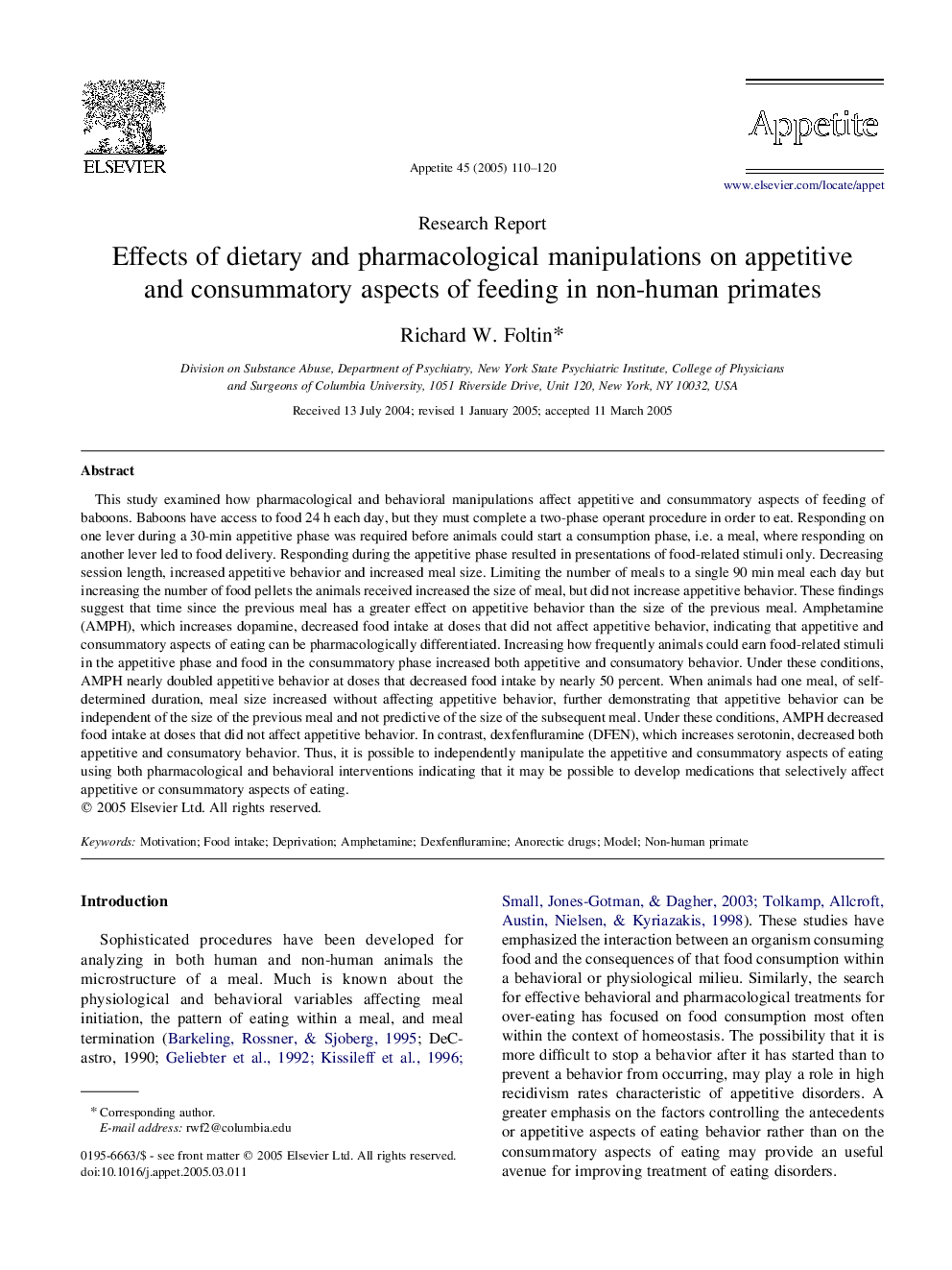| کد مقاله | کد نشریه | سال انتشار | مقاله انگلیسی | نسخه تمام متن |
|---|---|---|---|---|
| 10462662 | 924924 | 2005 | 11 صفحه PDF | دانلود رایگان |
عنوان انگلیسی مقاله ISI
Effects of dietary and pharmacological manipulations on appetitive and consummatory aspects of feeding in non-human primates
دانلود مقاله + سفارش ترجمه
دانلود مقاله ISI انگلیسی
رایگان برای ایرانیان
کلمات کلیدی
موضوعات مرتبط
علوم زیستی و بیوفناوری
علوم کشاورزی و بیولوژیک
دانش تغذیه
پیش نمایش صفحه اول مقاله

چکیده انگلیسی
This study examined how pharmacological and behavioral manipulations affect appetitive and consummatory aspects of feeding of baboons. Baboons have access to food 24Â h each day, but they must complete a two-phase operant procedure in order to eat. Responding on one lever during a 30-min appetitive phase was required before animals could start a consumption phase, i.e. a meal, where responding on another lever led to food delivery. Responding during the appetitive phase resulted in presentations of food-related stimuli only. Decreasing session length, increased appetitive behavior and increased meal size. Limiting the number of meals to a single 90Â min meal each day but increasing the number of food pellets the animals received increased the size of meal, but did not increase appetitive behavior. These findings suggest that time since the previous meal has a greater effect on appetitive behavior than the size of the previous meal. Amphetamine (AMPH), which increases dopamine, decreased food intake at doses that did not affect appetitive behavior, indicating that appetitive and consummatory aspects of eating can be pharmacologically differentiated. Increasing how frequently animals could earn food-related stimuli in the appetitive phase and food in the consummatory phase increased both appetitive and consumatory behavior. Under these conditions, AMPH nearly doubled appetitive behavior at doses that decreased food intake by nearly 50 percent. When animals had one meal, of self-determined duration, meal size increased without affecting appetitive behavior, further demonstrating that appetitive behavior can be independent of the size of the previous meal and not predictive of the size of the subsequent meal. Under these conditions, AMPH decreased food intake at doses that did not affect appetitive behavior. In contrast, dexfenfluramine (DFEN), which increases serotonin, decreased both appetitive and consumatory behavior. Thus, it is possible to independently manipulate the appetitive and consummatory aspects of eating using both pharmacological and behavioral interventions indicating that it may be possible to develop medications that selectively affect appetitive or consummatory aspects of eating.
ناشر
Database: Elsevier - ScienceDirect (ساینس دایرکت)
Journal: Appetite - Volume 45, Issue 2, October 2005, Pages 110-120
Journal: Appetite - Volume 45, Issue 2, October 2005, Pages 110-120
نویسندگان
Richard W. Foltin,